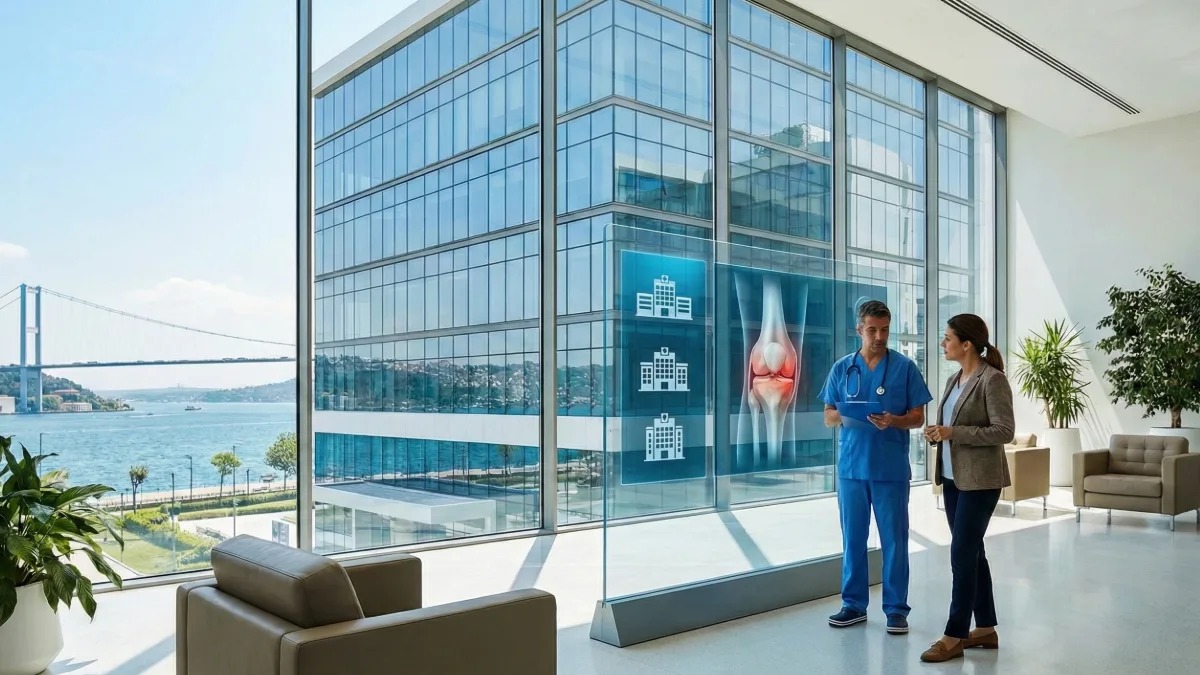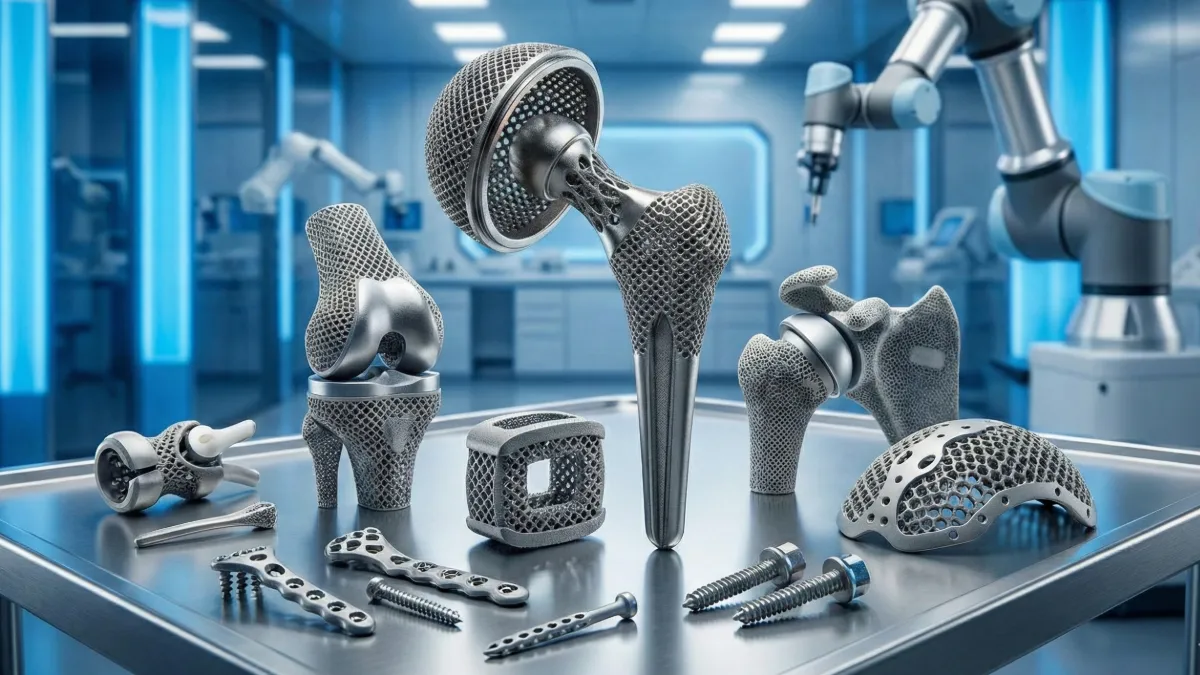What Is Retinal Detachment?
Retinal detachment occurs when the light-sensitive tissue at the back of the eye (the retina) separates from its normal position. This condition prevents the retina from functioning properly and can result in severe vision loss if not treated promptly. Patients often describe symptoms such as flashes of light, a sudden increase in floaters, or the impression of a curtain falling over part of their vision. These warning signs should never be ignored.
Retinal detachment treatment in Turkey is approached as a medical emergency. At Avicenna International Hospital, our ophthalmology specialists emphasize the importance of early diagnosis and immediate care. By identifying the type of detachment—rhegmatogenous, tractional, or exudative—our team tailors the most effective treatment plan for each patient.
Key symptoms of retinal detachment include:
- Flashes of light (photopsia)
- Sudden appearance of floaters
- A shadow or curtain effect in vision
For more details about available services, please visit our Ophthalmology Department page.
Diagnosis & Urgency (Macula-On vs Macula-Off)
Timely diagnosis is critical in retinal detachment surgery Turkey. Eye examination methods such as optical coherence tomography (OCT) and dilated fundus examination allow specialists to confirm the diagnosis and plan treatment.
The urgency depends on the condition of the macula:
- Macula-on retinal detachment: Surgery should ideally be performed within 24 hours to preserve central vision.
- Macula-off retinal detachment: Surgery is recommended within 2–3 days for the best visual outcomes.
At Avicenna, patients presenting with sudden symptoms receive priority assessment by ophthalmology specialists. Our emergency response system ensures that macula-on retinal detachment urgent surgery Turkey cases are managed immediately to maximize the chance of visual recovery.
By combining rapid diagnosis with advanced surgical planning, our hospital provides both safety and reassurance for international patients facing this sight-threatening condition.
Treatment Options
Several surgical techniques are available for managing retinal detachment, and the right choice depends on the type of detachment, patient age, and overall eye health. Specialists usually decide between sealing the retinal tear with laser or cryotherapy, placing a scleral buckle, performing pneumatic retinopexy, or carrying out pars plana vitrectomy (PPV).
Laser Photocoagulation & Cryotherapy
When retinal detachment is caused by small tears, laser treatment or cryotherapy can be applied to seal the edges and prevent fluid from accumulating behind the retina. This approach is minimally invasive and often used as a preventive measure for early cases.
Pneumatic Retinopexy
In selected patients, pneumatic retinopexy Turkey involves injecting a small gas bubble into the eye. The bubble presses the retina back into position while the tear is sealed with laser or cryotherapy. It is effective in carefully chosen cases, though it requires the patient to maintain a specific head position during recovery.
Scleral Buckle
Scleral buckle surgery Turkey has been used for decades as a reliable method. A silicone band is placed around the eye to relieve traction on the retina and close the tear. This procedure is especially useful in younger patients or when multiple tears are present.
Pars Plana Vitrectomy (PPV)
Vitrectomy for retinal detachment Turkey is now the most common technique worldwide. During PPV, the vitreous gel is removed and replaced with gas or silicone oil to hold the retina in place. Advanced microincision technology and 3D visualization systems help improve outcomes and reduce complications.
At Avicenna International Hospital, our vitreoretinal surgeons use a patient-specific approach, choosing the most appropriate method based on clinical findings. This ensures higher success rates and safer recoveries.
Recovery & Aftercare
Recovery after retinal detachment treatment in Turkey depends on the surgical method and the use of gas or silicone oil. Patients may need to remain face-down for several days if a gas bubble is used, allowing the retina to heal correctly. Strict positioning is one of the most important aspects of recovery.
Key guidelines for recovery time after retinal surgery Turkey include:
- Catheter not required, but patients may need protective eye shields
- Face-down positioning after retinal surgery Turkey for several days when gas is used
- Avoid air travel until the gas bubble has completely dissolved
- Light activities can resume in 2–3 weeks, full recovery often takes 6–8 weeks
Can I fly after gas bubble retinal surgery Turkey? No, flying is unsafe until the bubble disappears, as cabin pressure changes may damage the eye. Doctors provide exact timelines depending on the patient’s healing speed.
Our Eye Center provides detailed aftercare instructions, including hygiene, medication schedules, and follow-up visits. International patients receive clear guidance on when it is safe to travel home. By combining expert surgery with structured aftercare, Avicenna ensures safer healing and better long-term results.
For further details, please visit our Eye Center page.
Risks, Complications & Success Rates
Every surgical procedure carries some risks, and retinal detachment treatment is no exception. However, when performed in accredited hospitals under the care of experienced vitreoretinal surgeons, the outcomes are highly favorable. The main complications include proliferative vitreoretinopathy (PVR), cataract formation after vitrectomy, elevated intraocular pressure, or a risk of the retina detaching again. Early detection and timely surgery significantly reduce these risks.
Success rates of retinal detachment treatment in Turkey are comparable to those in Western countries. With advanced surgical tools, 3D imaging, and microincision technology, surgeons can achieve high anatomical reattachment rates and functional visual recovery. Patients are often reassured by the fact that most procedures are performed using minimally invasive methods, which shorten recovery times and improve safety profiles.
At Avicenna International Hospital, risk management starts before surgery. Patients undergo detailed pre-operative examinations, and each procedure is carefully tailored to individual needs. By combining strict safety standards with state-of-the-art equipment, our team consistently delivers high success rates and safe outcomes.
Why Choose Turkey?
Turkey has become one of the most sought-after destinations for retinal detachment surgery due to its balance of advanced technology, experienced surgeons, and affordability. International patients value not only the high-quality outcomes but also the efficiency of the healthcare system, which allows treatment without long waiting lists.
Best hospital for retinal detachment in Turkey searches often highlight institutions with international accreditation, advanced vitreoretinal units, and dedicated ophthalmology departments. In Istanbul, ophthalmology specialists provide care that meets global standards while offering a more accessible option compared to the UK or USA.
Our hospital combines these advantages with a patient-centered approach. International patients benefit from multilingual coordinators, streamlined admission processes, and continuous follow-up care. This makes retinal detachment treatment in Turkey not only medically reliable but also supportive and stress-free.
For more information about medical tourism support, please see our Health Tourism Guide.
Choosing the Right Clinic & Surgeon in Istanbul
Selecting the right clinic is one of the most important steps when considering retinal detachment treatment in Turkey. International patients should look for hospitals with accredited ophthalmology departments, advanced vitreoretinal units, and surgeons experienced in high volumes of retinal detachment cases. Accreditation and international recognition provide assurance that global standards of safety and care are being followed.
Ophthalmology specialists in Istanbul Turkey often combine years of surgical expertise with access to the latest diagnostic and treatment technology. When choosing a hospital, patients are encouraged to consider factors such as 24/7 emergency capacity, availability of microincision vitrectomy systems, and transparent communication throughout the treatment process.
At Avicenna International Hospital, patients benefit from a multidisciplinary approach. Each case is discussed by a team of specialists to ensure a comprehensive plan. This reduces risks and improves visual outcomes. For more details about our team, please visit our Ophthalmology Doctors page.
Patient Journey & Hospital Support Services
The patient journey at Avicenna is designed to be smooth and reassuring, especially for those traveling from abroad. From the first contact to full recovery, every stage is coordinated by multilingual patient coordinators who provide guidance in scheduling, travel arrangements, and medical documentation.
Typical patient flow includes:
- First symptoms: urgent consultation and eye examination
- Diagnosis: confirmation with OCT and fundus exam
- Treatment: surgery scheduled within the recommended timeframe
- Recovery: structured aftercare with clear instructions
- Follow-up: online or in-person consultations
International patient support Turkey is one of the hospital’s strongest services. This includes airport transfers, assistance with accommodation, and ongoing communication even after patients return to their home country. By combining advanced surgical care with supportive services, Avicenna ensures that international patients feel safe, informed, and cared for throughout their treatment journey.
For further information about international healthcare options, see our Health Tourism Guide.
Advanced Technology in Retinal Surgery
Modern technology plays a key role in the success of retinal detachment treatment in Turkey. Hospitals equipped with state-of-the-art devices can provide safer procedures, shorter recovery times, and more reliable outcomes. Vitrectomy for retinal detachment Turkey, for example, benefits from microincision techniques that reduce trauma and allow faster healing.
Advanced technology includes:
- 3D visualization systems that give surgeons enhanced depth perception
- Microincision vitrectomy instruments for more precise surgery
- High-powered laser platforms for sealing retinal tears
- Modern cryotherapy units for treating fragile retinal tissue
At Avicenna International Hospital, ophthalmology specialists utilize these innovations daily. Our Eye Center is fully equipped with advanced diagnostic and surgical tools, ensuring that each patient benefits from the latest developments in retinal surgery. This commitment to technology supports both high success rates and improved patient comfort.
For more information, please visit our Eye Center page.
FAQs about Retinal Detachment in Turkey
Patients considering surgery often ask similar questions. Below are some of the most frequent queries answered by our specialists:
How long is recovery after surgery?
Most patients return to light activities in 2–3 weeks, with full recovery in 6–8 weeks.
Can I fly after retinal surgery?
If a gas bubble is used, flying is not allowed until it completely dissolves. Doctors provide guidance on when travel is safe.
What is face-down positioning and why is it important?
Face-down positioning after retinal surgery Turkey helps the gas bubble press the retina back into place, improving healing and outcomes.
Will my vision return to normal?
Results vary. Many patients experience significant improvement, though final outcomes depend on the type and duration of detachment.
Is retinal laser treatment for retinal tear Turkey available?
Yes. Laser therapy is frequently used either as a preventive treatment or alongside surgery to seal retinal tears.
For personalized answers, international patients are encouraged to contact us directly through our Contact Page.
Start Your Retinal Detachment Treatment Journey in Turkey
Retinal detachment is a serious condition that requires urgent and expert care. Choosing the right hospital and surgeon makes all the difference in protecting your vision and ensuring long-term success. With its advanced technology, internationally accredited hospitals, and experienced vitreoretinal surgeons, Turkey has become a trusted destination for patients worldwide.
At Avicenna International Hospital, we provide individualized treatment plans, advanced surgical techniques, and continuous support for international patients. From the first consultation to post-operative follow-up, our team ensures professionalism, compassion, and clear communication every step of the way.
If you are experiencing symptoms or have been diagnosed with retinal detachment, now is the time to act. Don’t delay sight-saving treatment. Contact our specialists today to arrange your consultation and begin your journey to safe and effective recovery.
For more details or to speak directly with our care team, please visit our Contact Page.







